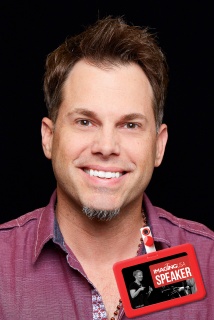How to make the impossible possible for your business
Brant Menswar shares his ACDC approach to running a small business.
• October 2018 issue
When Brant Menswar’s son Theo was 14, he was diagnosed with a rare blood disease. Theo needed a bone marrow transplant to survive, which he received. But the transplant didn’t go as planned. Complications began to spiral dangerously, and Menswar’s son developed a pair of life-threatening conditions that had contradictory treatment plans. Treating one condition exacerbated the other, and vice versa. Facing no foreseeable treatment options, the doctors delivered the devastating news that Theo wasn’t going to make it. Even worse, they predicted he wouldn’t make it through the night, advising the family to say their goodbyes.
That night, Menswar’s youngest brother filmed himself holding up a series of signs begging for help for his nephew Theo. He set the video to Coldplay’s “Fix You,” and uploaded it to YouTube and social media. The video went viral, logging more than 500,000 views in less than 48 hours. While this was happening, Theo hung on, making it through that first night and beyond.
That little bit of extra time would make all the difference. Calls started coming in from doctors across the country. One of those doctors was Tim Johnson, M.D., a senior medical contributor for ABC News and Good Morning America, who told the Menswars to send a list of doctors they wanted to talk to. They did, and Johnson helped facilitate a conference call with several leading specialists, who worked with the onsite medical team to come up with a treatment plan that stabilized Theo and ultimately saved his life.
“We literally turned the impossible into possible,” says Menswar. “Since then, I’ve made it my mission in life to help other people change their circumstances so they don’t have to go through what I went through.”
A professional musician by trade, Menswar had made his living on the road since 2003. The experience with his son separated him from his band for the better part of a year, putting his music career on hiatus as the family ultimately spent 263 days living in the Florida Hospital for Children. As his son transitioned back into family life, Menswar had to find a way to transition into a new line of work that would help him fulfill his mission to help people navigate change.
He teamed up with fellow musician and collaboration expert Alan Schaefer and created an organization called Banding People Together. Together they have helped more than 100 companies around the world implement what they call “true collaboration.” Menswar also wrote a book, “Rock ‘n’ Roll With it: Overcoming the Challenge of Change,” showing how people can effectively enact intentional change.
In January 2019, Menswar will bring his insights to Imaging USA, where he’ll share thoughts on how photographers can create superfans of their business.

Turning the impossible to possible
“When my son was sick, my problem was I let someone else dictate his well-being. I let other people determine the circumstances because I didn’t have the right people in the room having the right conversations, and that dictated the outcomes. That has haunted me since then, and my obsession over the past several years has been finding ways to turn the impossible to possible.”
To do that, Menswar uses what he calls the ACDC approach. By paying attention to these four pillars, Menswar says photographers and other small business owners can put themselves on the path to a more effective, fulfilling business:
1. Awareness. The approach begins with self-awareness, which includes defining the core values you’ll use to make decisions about your business.
2. Collaboration. Art doesn’t happen in a vacuum. Collaborating with your subjects, your staff, and fellow photographers will produce better results.
3. Discipline. Awareness and collaboration are about making things happen. It’s discipline that begets sustainability. There are three Ds of discipline:
- Define your core values.
- Determine your motivation.
- Direct your feelings.
4. Commitment. Commitment continues the process of sustainability. Your values, motivation, and feelings determine the level of commitment that’s possible.

Values vs. feelings
For most people, the process begins with understanding your core values. Core values are developed over a lifetime, and they rarely change. They are the fabric of who you are. There are typically four or five core values we can live out on a consistent basis, and those values define our decision-making process.
If you don’t know what your core values are, then you have no litmus test to tell if you’re honoring them when you make a decision. “When you struggle to make decisions, it’s because you never truly established those core values,” says Menswar. “Ask yourself, If I make this decision, am I honoring my core values? If the answer is yes, then do it. It’s that simple.”
When you haven’t taken time to develop core values, your feelings drive all your decisions. That’s not good because feelings can be volatile—too volatile to use as your only tool in the decision-making process. “Feelings are so powerful, but they can be big liars,” explains Menswar. “We get worked up for a variety of reasons, and when we allow ourselves to be dictated by our feelings, it exacerbates everything. At the heart of every change we go through—and as a small business owner you are constantly dealing with change—there is a tug of war between values and feelings. But if we can align our values with our feelings, then change is easy.”
Aligning values and feelings also helps us be more self-aware, adds Menswar. When you’re solidly rooted in your core values, you can use your feelings as a barometer. For example, if you’re feeling uneasy about something, a good understanding of your core values will help you understand why. Then your feelings can actually help you in your decision-making process.
It’s a process
“As photographers, you have a very unique opportunity to help somebody change what’s possible,” says Menswar. “A photograph lasts forever. It gives somebody an opportunity to relive a moment over and over again. It can help them change their perspective. It can give them hope. As someone who spent the better part of a year with a child in a pediatric cancer ward, I can tell you the value of a good photo.”
Creating something so powerful is a special opportunity, says Menswar. But to get to that place, to make that connection with a client, photographers need to be true to themselves. When you are aware enough to align your values and feelings, when you open yourself up to true collaboration, when you have the discipline to stay true to your core values, and when you are committed to the process, then great things can happen.
Jeff Kent is editor-at-large of Professional Photographer.


